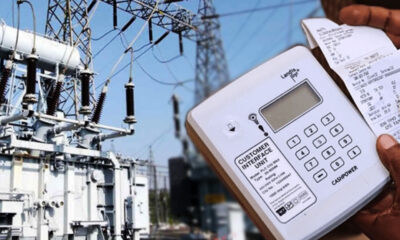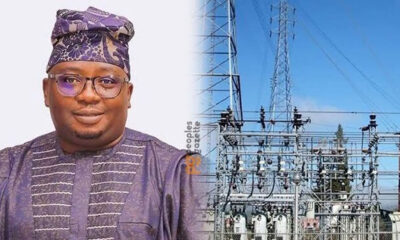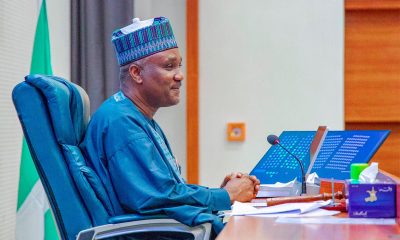metro
‘GenCos sell cheap power to neighbouring countries’

‘GenCos sell cheap power to neighbouring countries’
Some electricity Generating Companies (GenCos) sell electricity to neighbouring countries at a lower cost than the Distribution Companies (DisCos) in Nigeria, a document obtained at the weekend by The Nation has shown.
Although the document did not show the price differentials, it said the errant GenCos were carrying “unregulated sales or secret deals” to earn foreign exchange at all cost” and in defiance of an existing Federal Government directive.
The GenCos are also said to be sidelining the Nigerian Bulk Electricity Trading Plc (NBET), a government agency in charge of the novation of international agreements. There are 24 registered GenCos in the country.
The Federal Government has been losing revenue from the sales of electricity to the neighbouring, it was learnt.
According to the document, in Q2 and Q4 of 2022, about $16.92 million in invoices were exchanged between GenCos and international customers in Niger, Benin Republics and Togo.
Investigation showed the breaches by the few GenCos include the violation of the transfer Order made pursuant to Section 10 of the Electric Power Sector Reform Act (EPSRA) by the National Council on Privatisation (NCP).
READ ALSO:
- DSS: We did not arrest Yari for not picking Tinubu’s call
- No agency raided our office for documents on Tinubu – CCB
- I worked against Atiku, PDP in last elections – Fayose
Worried by non-adherence to International Power Sale Agreement (IPSA), the administration of ex-President Muhammadu Buhari waded in to guide the GenCos.
In a memo dated July 12, 2019, the Presidency directed NBET to oversee IPSA.
An industry source, who spoke on the development, called on President Bola Tinubu to take ”a serious look at the breaches being committed by the GenCos on international power sales“
The source, who declined to be named, said: ”What has been happening is the sidelining of NBET. Electricity is now being sold to neighbouring countries in an unregulated way.
“Buhari had directed that all international sales and purchase agreements must be negotiated directly with NBET unless otherwise approved by him ( ex-President).
“The directive became necessary in order to align with the configuration of the Nigerian electricity industry after privatisation. But this is not the case.
“The sales of electricity to foreign countries were backed up by international cooperation agreements between Nigeria on the one hand and the Republic of Benin and Togo for CEB (Communaute Electrique Du Benin) and Niger Republic for NIGELEC (Societe Nigerine D’electricite)
“As a matter of fact, wheeling of electricity to these countries was being channelled through the network of the Transmission Company of Nigeria(TCN) as there is no dedicated network between the private generating companies and the foreign countries.
READ ALSO:
- Abuse of office: PSC dismisses 3 senior police officers, demotes 9 others
- Disregard fake police recruitment advert on social media -Force PRO
- 14 die in Lagos-Badagry expressway accident
“Prior to these directives and upon the commencement of the Transitional Electricity Market in February 2015, the TCN that received the proceeds of the sale of electricity to international customers began crediting the international customers’ receipts to the account of NBET for payment to GenCos while NBET in turn shares among all the GenCos in a transparent process and in accordance with the approved waterfall.
“The former President’s directive reinforced the earlier directive from the Federal Ministry of Power, Works and Housing to the TCN vide a letter referenced FMP/OPS/360/I dated September 7, 2016, but, despite these, Nigerians were made to purchase expensive energy by selling the cheapest ones to the foreign countries.”
Another source privy to the “secret deals” said: “The quarterly reports released by the Nigerian Electricity Regulatory Commission for 2022 reveal how a few generating companies under the disguise of selling electricity to the international customers are milking Forex at the expense of other GenCos.
“The sales by the few GenCos are without any transparent procurement process known to any Nigerian Law.
“In 2022, Q 2 alone, the errant GenCos reaped in $7.98 million while $8.94 million invoice was exchanged between them for Q 4 of 2022.
“Part of the energy being sold to the international customers by Nigeria came from the Hydro Electric Generating Companies which is the cheapest cost of energy in Nigeria when compared with the thermal generating plants. The cost of energy from the latter is about six times the cost of the former.
“Prior to when the few GenCos cornered the forex from the international customers, inflows from such transactions were always shared among the entire GenCos in the portfolio of NBET to ameliorate the challenges faced by them in sourcing for foreign exchange.”
‘GenCos sell cheap power to neighbouring countries’
The Nation
metro
26 Killed as Bandits Attack Niger Communities, Burn Police Station, Homes
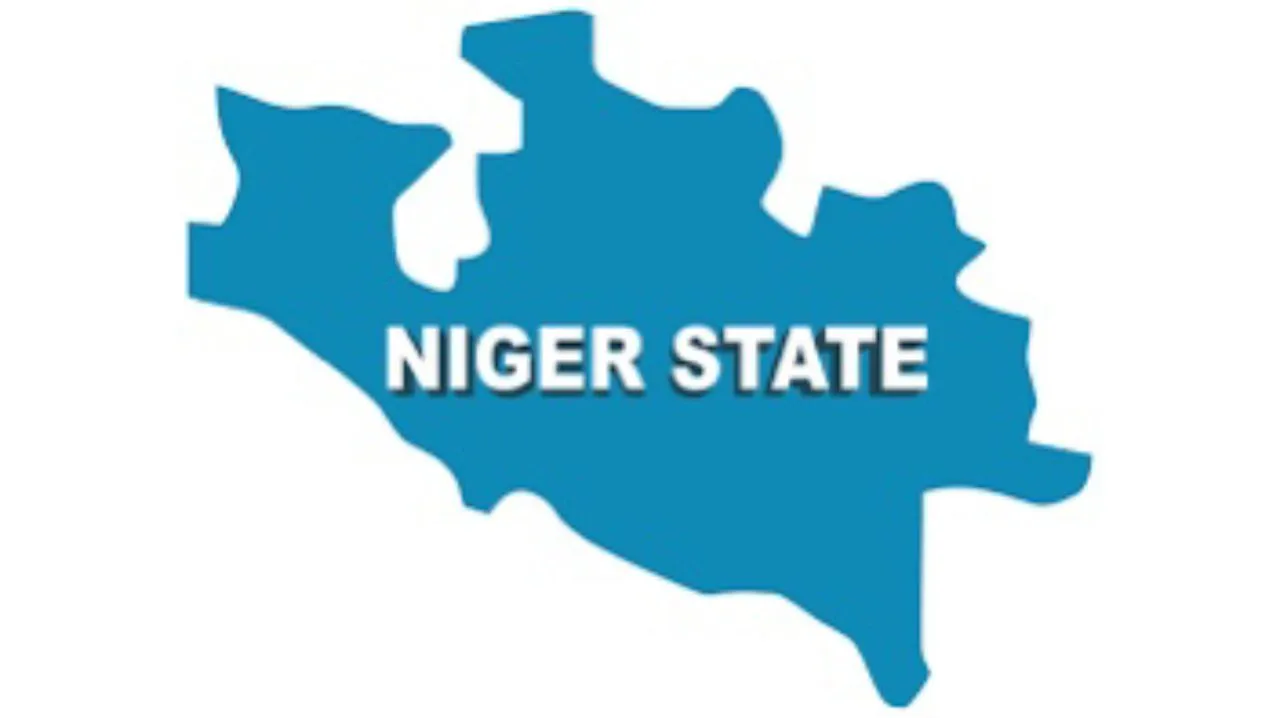
26 Killed as Bandits Attack Niger Communities, Burn Police Station, Homes
A fresh bandit attack in Borgu Local Government Area, Niger State, has left at least 26 people dead, destroyed homes, looted shops, and burnt down a police station, heightening fears in communities already plagued by insecurity. The raid targeted Tungan Makeri and Nkpaso communities in Konkoso ward during the early hours of Saturday, with gunmen reportedly moving house to house in a coordinated assault.
Eyewitnesses said the attackers, believed to number over 200 heavily armed men, executed some victims after tying their hands behind their backs. Seven of the deceased were reportedly slaughtered outright, while others were shot. Survivors fled in panic, leaving behind belongings, homes, and shops as the assailants razed property in their path.
The bandits also burnt down the police station at Konkoso, forcing officers on duty to flee. Although no weapons were reportedly taken, the destruction of the security post underscores the attackers’ dominance during the raid. Local sources suggest the assault may have been retaliatory, targeting communities that recently petitioned the federal government for a military base to curb escalating attacks.
READ ALSO:
- ‘Anti-Muslim Timetable’: MURIC Slams INEC Over 2027 Elections
- Boko Haram Terrorists Release Video of 176 Abducted Kwara Residents
- Troops Neutralise Scores of Terrorists, Recover Arms in Yobe
A community insider explained that the attackers told residents the government could not protect them and warned of further raids. Those killed were reportedly among the villagers advocating for federal intervention, sending a chilling warning to others.
This attack follows a Save-Our-Soul (SOS) appeal made last week by political and traditional leaders in Borgu and Agwara Local Government Areas, requesting the federal government urgently deploy troops and establish a military base. Leaders described the security situation as “worrisome and scary,” with the entire Borgu Kingdom under siege from bandits and criminals over the past three months.
Most Rev. Dr. Bulus Dauwa Yohanna, the Chairman of the Christian Association of Nigeria (CAN) Niger State chapter and Catholic Bishop of Kontagora Diocese, noted that residents now live in constant fear, unable to farm, trade, or carry out daily activities safely. He called for urgent government intervention to restore peace.
As of the time of reporting, neither the Niger State Government nor the state police command has issued an official response to the attack. Security experts warn that the latest raid underscores the escalating security crisis in Niger State and North-Central Nigeria, calling for swift military reinforcement, better intelligence deployment, and protection of vulnerable communities.
26 Killed as Bandits Attack Niger Communities, Burn Police Station, Homes
metro
‘Anti-Muslim Timetable’: MURIC Slams INEC Over 2027 Elections
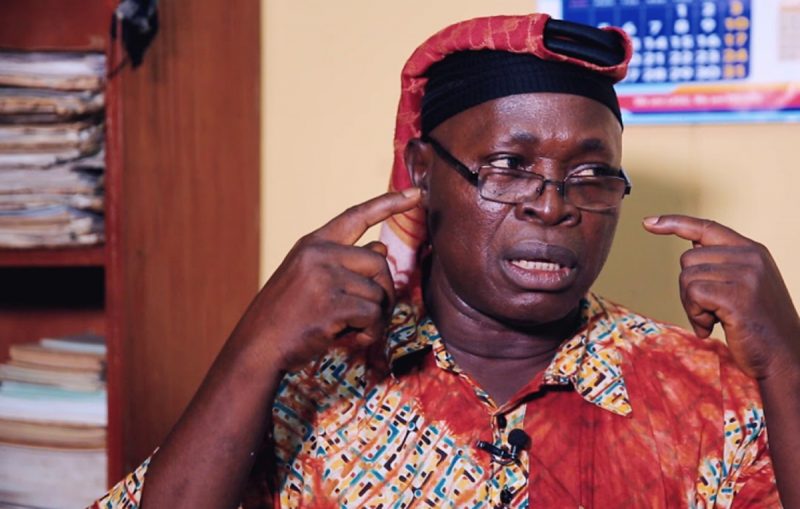
‘Anti-Muslim Timetable’: MURIC Slams INEC Over 2027 Elections
The Muslim Rights Concern (MURIC) has rejected the 2027 election timetable released by the Independent National Electoral Commission (INEC), accusing the commission of acting as if there are no Muslims in Nigeria by fixing major election dates within the holy month of Ramadan.
In a statement issued on 14 February 2026, MURIC’s Executive Director, Professor Ishaq Akintola, described the timetable as exclusive, insensitive and provocative, warning that it could disenfranchise millions of Muslim voters across the country.
According to the schedule announced in Abuja on 13 February 2026 by INEC Chairman, Professor Joash Amupitan, the presidential and National Assembly elections are slated for 20 February 2027, while governorship and state assembly elections are fixed for 6 March 2027. MURIC noted that Ramadan is projected to begin around 8 February and end about 10 March 2027, meaning all major elections would take place during the fasting period.
The organisation argued that holding elections during Ramadan would impose severe hardship on Muslim voters, electoral officials, ad hoc staff and security personnel who would be fasting while participating in a physically demanding national exercise. According to MURIC, this could lead to fatigue, reduced voter turnout and heightened tension at polling units.
READ ALSO:
- Boko Haram Terrorists Release Video of 176 Abducted Kwara Residents
- Troops Neutralise Scores of Terrorists, Recover Arms in Yobe
- Woman Arrested Over Murder of Nigerian E-Hailing Driver in South Africa
MURIC further accused INEC of failing to consider Nigeria’s religious diversity, questioning whether Muslim staff or commissioners were consulted during the drafting of the timetable. The group said proper consultation with past INEC chairmen would have highlighted the need to avoid scheduling elections during major national or religious events.
The group warned that the implications of the timetable go beyond inconvenience, alleging that it amounts to religious discrimination and an attempt to alienate and disenfranchise Nigerian Muslims. It also expressed concern that fasting security personnel and election workers could face excessive stress during early-morning deployments and long election hours.
Professor Akintola added that continued disregard for Muslim concerns could fuel anger among youths, warning that frustration may escalate if the timetable is not reviewed. He maintained that the election calendar gives the impression that Muslim opinions no longer matter in government decision-making.
As of the time of filing this report, INEC has not responded to MURIC’s claims or indicated whether it plans to review the 2027 election timetable. The development has sparked debate nationwide, with growing calls for inclusive and sensitive election planning in a multi-religious society like Nigeria.
‘Anti-Muslim Timetable’: MURIC Slams INEC Over 2027 Elections
metro
Boko Haram Terrorists Release Video of 176 Abducted Kwara Residents

Boko Haram Terrorists Release Video of 176 Abducted Kwara Residents
Suspected members of Boko Haram, formally known as Jama’atu Ahlissunnah Lidda’awati wal-Jihad, have circulated a video showing 176 abducted residents allegedly taken from Woro community in Kaiama Local Government Area of Kwara State.
The disturbing footage, which has since sparked outrage and fear across the state, reportedly shows dozens of women and children seated in rows in an open area, surrounded by armed men. Among them were a nursing mother and several minors. Some of the children appeared half-clothed, while many of the captives looked visibly distressed, suggesting harsh conditions in captivity.
In the video, one of the armed men interrogates the captives, asking where they were abducted. Responding in Hausa, three women — including a nursing mother — stated that they were kidnapped from Woro community in Kaiama LGA.
During the recording, the terrorist accused the Kwara State Government of downplaying the scale of the abduction. According to him, while officials reportedly claimed that between 20 and 30 persons were kidnapped, the group insisted it was holding 176 victims.
“The Kwara State government lied to Nigeria and to the whole world,” the gunman alleged in the footage.
READ ALSO:
- Troops Neutralise Scores of Terrorists, Recover Arms in Yobe
- Woman Arrested Over Murder of Nigerian E-Hailing Driver in South Africa
- Fubara Chooses Peace, Dedicates “Man of the Year” Award to Wike
As of the time of this report, the Kwara State Government has not publicly confirmed the number of persons abducted from Woro community nor officially responded to the claims made in the video.
Background to the Attack
The video emerged weeks after a deadly attack on Woro community on February 4, 2026, when suspected terrorists stormed the area in a coordinated assault. Local sources reported that several residents were killed during the invasion, including family members of the Emir of Woro, the Chief Imam, and education officials.
The traditional ruler, Alhaji Saliu Bio Umar, was reported missing following the attack, fuelling concerns that he may have been abducted during the raid. The assailants reportedly attacked both residents and travellers passing through the community, killing indiscriminately before retreating.
Security analysts have linked the attackers to extremist elements believed to have operational ties across the Sahel region, raising concerns about the possible expansion of insurgent networks into parts of North-Central Nigeria previously considered relatively stable.
Rising Security Concerns in Kwara
The incident has heightened anxiety across Kaiama LGA and surrounding districts, particularly in Kwara North, where residents say rural communities remain vulnerable due to limited security presence and difficult terrain.
While security agencies have reportedly intensified surveillance and deployment in affected areas, there has been no official statement confirming rescue operations or negotiations regarding the abducted victims.
Community leaders have called on the Federal Government and security forces to urgently intervene to secure the safe release of the captives and prevent further attacks.
The emergence of the video has once again drawn national attention to the evolving security challenges in Kwara State and the need for coordinated efforts to curb the spread of extremist violence beyond the North-East region.
Boko Haram Terrorists Release Video of 176 Abducted Kwara Residents
-

 metro3 days ago
metro3 days agoIKEDC Sets Feb 20 Deadline for Customers to Submit Valid IDs or Face Disconnection
-

 Education3 days ago
Education3 days agoSupreme Court Affirms Muslim Students’ Right to Worship at Rivers State University
-

 metro2 days ago
metro2 days agoLagos Police Launch Manhunt for Suspect in Brutal Ajah Murder
-

 News2 days ago
News2 days agoAso Rock Goes Solar as Tinubu Orders National Grid Disconnection
-

 Business3 days ago
Business3 days agoNaira Could Trade Below ₦1,000/$ With Dangote Refinery at Full Capacity — Otedola
-

 Politics3 days ago
Politics3 days agoCity Boy Movement Receives Bus Donations from Zenco, Obi Cubana for Tinubu’s Campaign
-

 metro3 days ago
metro3 days agoArmy University Professor Dies in Boko Haram Captivity After Nearly One Year
-

 International3 days ago
International3 days agoTrump Halts Minnesota Immigration Crackdown After Fatal Shootings, Protests





